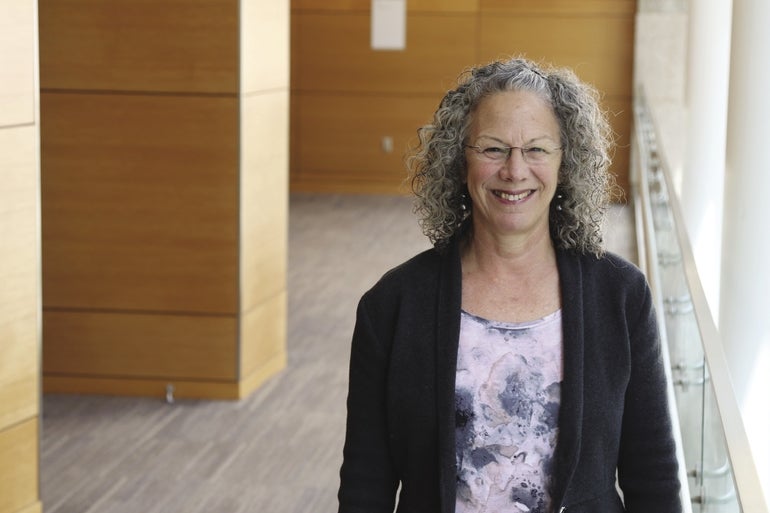While people were rightfully focused on the coronavirus pandemic, as May turned to June, Massachusetts hit a public health milestone, effectively banning flavored tobacco and other smoking products, including menthol, and levying a steep new tax on vaping products.
Get Instant Access to This Article
Subscribe to Worcester Business Journal and get immediate access to all of our subscriber-only content and much more.
- Critical Central Massachusetts business news updated daily.
- Immediate access to all subscriber-only content on our website.
- Bi-weekly print or digital editions of our award-winning publication.
- Special bonus issues like the WBJ Book of Lists.
- Exclusive ticket prize draws for our in-person events.
Click here to purchase a paywall bypass link for this article.
While people were rightfully focused on the coronavirus pandemic, as May turned to June, Massachusetts hit a public health milestone, effectively banning flavored tobacco and other smoking products, including menthol, and levying a steep new tax on vaping products. Massachusetts has been on the forefront of anti-tobacco legislation before. In 2018, it became the first state to ban pharmacies from selling tobacco products. Massachusetts was the sixth state in the country to raise its minimum age for buying tobacco to 21 from 18, doing so at the start of 2019. It was also one of 19 states to have raised the minimum buying age before it became a federal law in December. The good news: Massachusetts, at 13.4%, is 10th lowest nationally for adult smoking rates. The bad news: nine Central Massachusetts towns have smoking rates of 20% or more, including Southbridge at 25%. So Tina Grosowsky, the project coordinator for the Central Massachusetts Tobacco Free Community Partnership at UMass Medical School in Worcester, is encouraged by progress the state has made but is always working to help do more, including a statewide school program training school nurses on how to fight nicotine addiction from vaping.
Why was it important to ban flavored and menthol cigarettes and other smoking products?
Research has shown a disproportionate number of people of color smoke menthol, and they have higher rates of lung cancer. About half of Massachusetts communities had already created flavor restrictions, so in January the legislature stepped up and did it. We’re the first to pass a statewide menthol restriction. It’s a racist policy by the industry, and it creates more health disparities.
So cigarette brands known for menthol, including Newport and Salem, can’t be sold at all in Massachusetts now unless you’re in a smoking bar. And those places are closed right now because of the pandemic anyway.
The new law taxes nicotine vaping products and requires insurers to cover tobacco cessation programs?
Yes. The parity between state taxes on cigarettes and vaping products was so great. Massachusetts taxes more than $3 per pack of cigarettes, but vaping was very cheap. Now it’s a 75% excise tax on vaping products.
You’re encouraged by new help-to-quit programs for menthol?
Programs in place now give gift cards as incentives to contact a quit line. They’re trying to get people engaged, and the gift card incentive is a way to get people engaged. A program called QuitWorks is an online referral program to a quit line. It’s another step in helping to get people to quit.
After only a few months since the new regulations went into place, do we have any sense yet of how well it’s worked?
We don’t know that yet. But Boston was the first to raise the minimum purchasing age for cigarettes from 18 to 21 and put in a flavored restriction, and sales went down significantly. That’s what helped legislators pass the most recent bill, because they saw the effect it had. It’s hard to measure sales because retailers don’t want to tell you.
What are other ongoing initiatives?
We’re offering more vaping cessation programs for adolescents. There are a few app-based ones. One is called This is Quitting, which gives encouraging messages by text. There’s My Life My Quit, which allows teens to be connected to a youth-trained coach who will walk them through an assessment of their dependence and what they get from it if they’re thinking of quitting.
Those are two new resources this year.
Are you and other advocates winning the fight against tobacco?
Yes, we are. Because smoking rates in Massachusetts are way down. Some communities are higher, but youth rates for smoking in some cases are down to 8% or 9%. Vaping is way higher, though, like 25%. They’re not smoking cigarettes, and that’s great. But they’re vaping, and youth are vaping; and that’s been an impetus to put in place these new restrictions.
Are the restrictions enough to change those habits?
It’s not a habit – it’s an addiction. And the adolescent brain is really susceptible to nicotine. The reward system fires up and says “That’s really good.” For an adolescent, the brain starts growing, and it learns how to become addicted. Especially with vaping products, they were marketing a lot to youth even though they originally said they were designed to help adults quit smoking. Over the course of a couple days, youth tell us, they can easily go through a vaping pod or a few pods a day. It’s very easy to get addicted. It’s a very strong drug. It’s one of the hardest ones to quit.
This interview has been edited and condensed by Worcester Business Journal News Editor Grant Welker.

